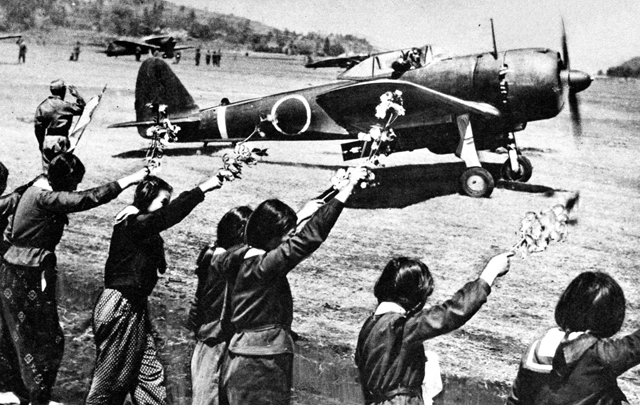
Towards the end of World War II, desperation by the Empire
of Japan led them to adopt the extreme tactic of flying suicide missions
against allied shipping. Planes laden with explosives would be deliberately
crashed into ships with the object of causing maximum casualties for the loss
of a single Japanese pilot.
These missions were termed “kamikaze”, which means “divine
wind”. But where did the term originate?
It relates to an important incident in Japanese history back
in 1281. The Mongols of central Asia had established a vast empire that
stretched from Hungary in the west to Korea in the east. This had been due
largely to the campaigns of Genghis Khan, but it was his grandson Kublai Khan
who was determined to add Japan to what had, up to that point, been a
contiguous land-based empire.
In August 1281 he assembled a vast fleet of ships that were
capable of transporting 140,000 soldiers. These were landed at Hakata Bay on
Kyushu, the southernmost of Japan’s four main islands, but they were met by a
fierce response in the form of Japanese samurai warriors. The invaders withdrew
to their ships to plan their next move.
Traditionally, the Japanese had always feared the 1st
of September, which is day 210 of the lunar calendar then in use in Japan. This
was called the “day of storms” because it was the mid-point of the typhoon
season and bad weather often occurred on that day.
Had the Mongols spent more time at sea and less on land
during their many years of conquest, they might have realized that this was not
a good time of the year to mount an invasion from the sea, but that was the
mistake they had made. A terrible typhoon duly arrived on 1st
September and caused utter havoc to the Mongol fleet.
Many of the ships were sunk in the storm, with others being
driven on shore and the shipwrecked soldiers promptly killed by the Japanese
defenders. One estimate of the disaster put the casualty figure as high as
100,000.
The typhoon therefore became the divine wind – the kamikaze
that would deliver Japan from its enemies.
© John Welford
No comments:
Post a Comment